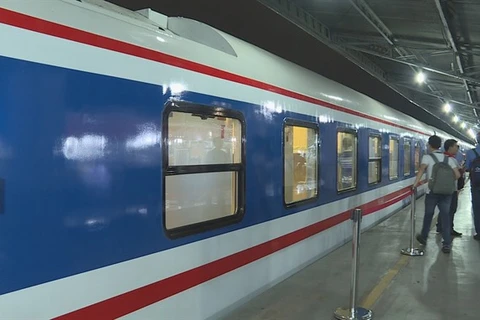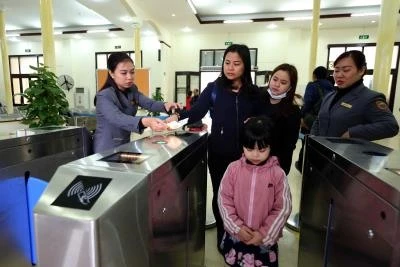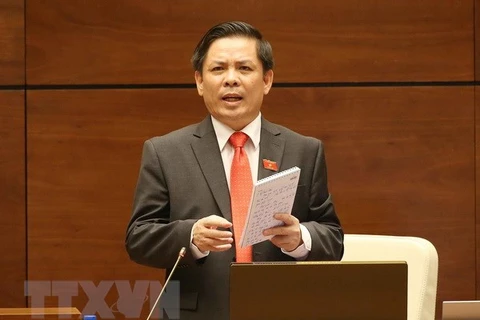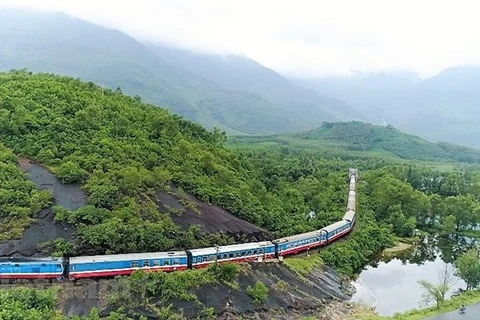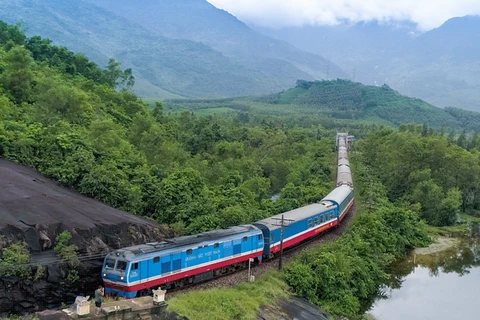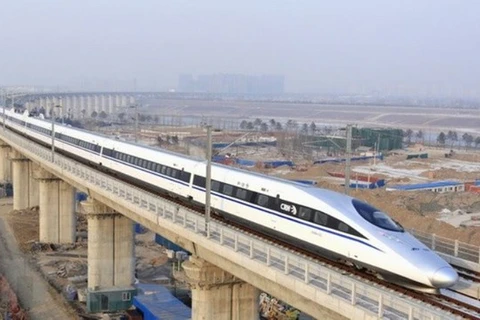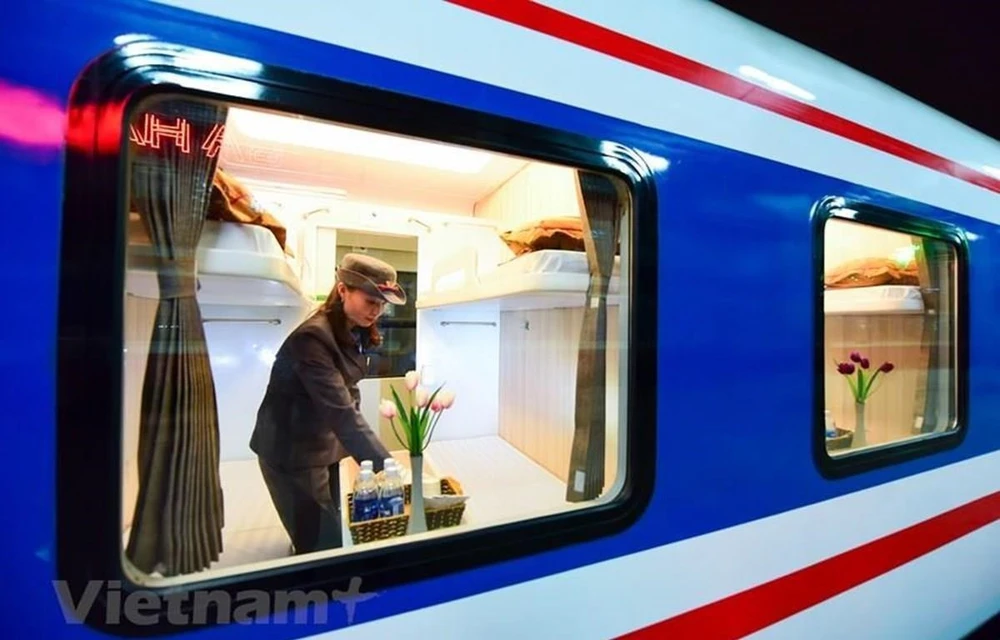
Hanoi (VNA) - The railway sector is facing numerous competitive pressure from other types of transportation, said experts.
Market share drop due to competitive pressures
At the conference to review its performance in 2019 and launch tasks for 2020 held on January 4, the Vietnam Railway (VNR) reported total revenue of 8.2 trillion VND (over 351.4 million USD) in 2019. The average income per worker per month reached 9.12 million VND.
Leaders of VNR attributed the encouraging results to transport joint stock companies’ proactiveness in seeking sources of goods, and developing new products such as express and cold container services, transporting goods from warehouses to stations, package services for passengers in group, and flexible freight rates.
The sector has also focused on improving the quality of services, and developing more product distribution agents. Meanwhile, electronic ticketing systems have been improved with more functions to better services for customers, they said.
However, VNR officials also acknowledged that the sector’s output and revenue were maintained at the levels as same as a year ago, and yet to complete the set plan as the rate of occupancy still remained low, even down compared to previous years.
Explaining the reason behind the situation, Vu Anh Minh, Chairman of the VNR's Member Council, said that some of by-law documents and decrees have yet to complete, while problems about mechanisms and policies in the field of railway infrastructure exploitation and business, and land use management have not been solved, causing significant impacts on the firm’s business and production results.
Notably, the formation low-cost carriers with new routes in short and medium distances, which used to be advantages of the rail transport industry, have created enormous competitive pressures and reduced the market share of the sector, Minh said.
Besides, investment resources for railway infrastructure development in 2019 were not distributed because of a mechanism problem, while capital for maintaining railway infrastructure reached only 40 percent.
According to Nguyen Thi Phu Ha, Vice Chairwoman of the Committee for Management of State Capital at Enterprises, the railway sector is facing fierce competitiveness. It is one of the industries without external resources for development, its revenue depends on ticket service.
The Committee for Management of State Capital at Enterprises has worked with the VNR to set up production and business targets, she said, expressing the hope that ministries and other sectors will support the VNR in submitting an infrastructure project to the Prime Minister soon.
It is necessary to have more mechanisms and policies to help the sector improve its competitiveness and build its development strategies in the coming time, she added.
Promoting restructuring for stronger development
Vu Anh Minh, Chairman of the VNR's Member Council, said the revised Railway Law 2017 has opened new opportunities for the industry in terms of mechanisms and policies.
The sector will see changes but not soon, Minh stressed, adding that it takes time and overall roadmaps.
In 2020, the VNR will build train operation charts on each section and route in accordance with each appropriate time and season in order to improve the operation efficiency.
 The Vietnam Railway will build train operation charts on each section and route in order to improve the operation efficiency (Photo: VietnamPlus)
The Vietnam Railway will build train operation charts on each section and route in order to improve the operation efficiency (Photo: VietnamPlus) The corporation will exert efforts to minimise railway traffic accidents, striving to reduce at least 5 percent compared to 2019 in the number of cases, deaths and injuries.
It will take measures to cut operating costs, operate locomotives effectively to reduce fuel costs, and obey regulations on train operation to ensure safety.
The VNR will also pay heed to implementing its restructuring project in the 2017-2020 period right after it is approved by the authorities, calling for the involvement of society to attract investments in developing railway infrastructure, while diversifying support services at stations to increase revenue; and promoting cargo, goods and freight forward services as well as door-to-door service./.
